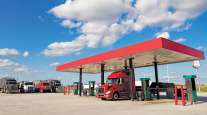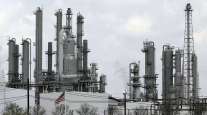Letters: Diesel vs. Natural Gas, Driver Shortage
These Letters to the Editor appear in the Jan. 21 print edition of Transport Topics. Click here to subscribe today.
Diesel vs. Natural Gas
In a story in your Jan. 7 issue noting that diesel consistently costs more than gasoline, [one source] comments that diesel is being phased out as a fuel of choice for much of the transportation sector (“Fuel-Price Spread Near Four-Year High Despite Recent Diesel, Gasoline Changes,” p. 1). This assertion is ludicrous and is in direct conflict with national and international government and private energy forecasting authorities.
The National Academy of Science, the U.S. Department of Energy’s National Petroleum Council and the International Energy Agency all released major studies in recent months clearly stating that diesel will remain the dominant energy source for decades to come, if not longer. In its 2040 Outlook, Exxon Mobil found that 70% of the growth in transportation fuels will come from diesel.
There’s no question that natural gas will play an increasing role as a transportation fuel. In fact, Frost & Sullivan predicts natural-gas penetration in the commercial truck fleet could possibly be as high as 8% in 2017.
Diversification of fuels and technologies is in our collective future and our collective interest. But let’s keep the debate honest. Virtually every U.S. and international energy and transportation agency knows diesel will remain the overwhelming transportation energy source beyond 2050.
Allen Schaeffer
Executive Director
Diesel Technology Forum
Frederick, Md.
I just read the opinion column by Fred Krupp, president of the Environmental Defense Fund, in your Dec. 24&31 issue, and I guess we have to agree to disagree (“Natural Gas: Proceed, But With Caution”).
The writer states that diesel emissions standards have effectively eliminated the advantage natural gas has over diesel as a fuel source, with the exception of CO2. He seems to use diesel standards as if they are going to clean up diesel engines. What about legacy engines and all the units that have their diesel particulate filters disabled for fuel efficiency? What about diesel particulates or mercury?
And the writer totally ignores bio-CNG [biologically sourced compressed natural gas] as has been available in Ohio since late 2011 and which is carbon neutral — not landfill gas but bio-digester gas.
Furthermore, he considers the life-cycle environmental impacts of natural gas from “wellhead to fuel pump” but fails to do the same for diesel fuel. He ignores the environmental devastation caused by petroleum operations and the transportation of said crude or diesel from halfway around the world or in North America — such as the tar sands.
Does he really believe shale natural gas produced in the United States is more dirty than its energy-equivalent in diesel produced in the Middle East and transported to the United States?
It is my belief and assertion that domestic shale natural gas is exponentially cleaner from a life-cycle perspective than any petroleum product from the Middle East, especially when industry-best practices are followed.
The opinion piece would have had a lot more credibility if the writer had been equally critical of the environmental effects of diesel production. As an environmentalist myself, I get weary of experts beating on natural gas and emphasizing caution that it “may not be all that it is cracked up to be,” yet the status quo is drastically inferior.
By trying to slow down the inevitable evolution from diesel to CNG — not liquefied natural gas, or LNG — the writer is prolonging the environmental and fiscal damage being done by our consumption of diesel refined from Middle Eastern crude.
I know the Environmental Defense Fund has taken a lot of heat for its president’s stance on natural gas, but really, he shouldn’t take cheap shots at natural gas. In the future, he should keep criticisms fair and address the toxic nature of petroleum and its distillates and the environmental effects of both fuel sources. If he is going to talk about fugitive emissions of one, he should talk about the spills and evaporate and environmental transportation costs of the other.
And please — stop ignoring bio-natural gas. No matter how badly you want to discredit natural gas and promote “clean diesel” (which is like saying “clean coal”), renewably produced natural gas is environmentally superior to petroleum distillates any day of the week. Bad-mouthing natural gas will not ingratiate you to those angry with EDF for supporting natural gas — and runs the risk of alienating the target audience.
I welcome the chance to further discuss bio-natural gas with anyone unfamiliar with this fuel source, which is chemically identical to methane. In the past, bio-CNG has been landfill-based, making it difficult to refine and clean. Now, however, bio-CNG is derived from the waste stream of such sources as canneries, factories and even sewage treatment plants.
Brad Couch
CNG Business Development Manager
Ariel Corp.
Mount Vernon, Ohio
Driver Shortage
There is no driver shortage. When everything else has a shortage, the rates go up. In trucking, it is the same old thing — do anything you can to get a driver and then do everything you can to drive him out.
Tell your shipper the driver will be happy to be your lumper. Make him get the load there yesterday. And the most hideous: Sell him on a lease-purchase on the truck he drives, making him make your payments for you while letting him think he actually will take title to it someday. It’s the same old same old. This industry is incapable of thinking outside the box to save its life.
Jim York
Former Driver
Columbus, Ohio




